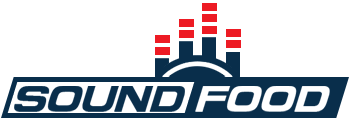Microsoft could soon implement a new watermarking system for music that would discourage piracy without restricting the usefulness of the music, according to a newly granted patent. Titled "Stealthy Audio Watermarking," the patent originally filed in May 2004 would use audio analysis to automatically place a digital signature inside the sound itself. Encoding software on a server would either look for gaps in the energy levels of a given track or create an uneven "chess" pattern, inserting data bits in areas where they are unlikely to affect the sound. Authorized software could then piece together a signature from the resulting information, identifying who bought a given track without requiring a separate digital rights layer that might restrict which devices can play the audio file.
Because the system is dependent on the actual structure of the music, it would make stripping the watermark extremely difficult, according to Microsoft. As the data would be seamlessly integrated with the sound, there would be no easily identifiable text or other data that could be altered. The inherently semi-random nature of bit placement would also prevent hackers from easily predicting where the watermark signature would appear. In one implementation, the media encoder that writes the signature could start the process at random points in tracks to further randomize the watermark.
While Microsoft has not announced plans to use the scheme and is not under any obligation to do so, the patent gives the Redmond, Washington-based firm the ability to launch a DRM-free music service while still giving its content providers a chance to locate and take action against the true pirates. The technique would also be universal and could survive use in different audio formats such as MP3 or live digital audio broadcasts, and therefore allow Microsoft to offer music compatible with the iPod and others that decline support of Microsoft-only standards.
The company previously said it was exploring the possibility of offering DRM-free songs in the wake of Universal Music’s trial run, which gave Amazon, Wal-Mart, and artists’ music stores an opportunity to sell the music label’s catalog without restrictions. Microsoft has until recently endorsed DRM systems such as its proprietary Zune store and the wider-spread PlaysForSure system built into Windows Media. Both the company and its main challenger, Apple, have suffered as hackers repeatedly discovered ways to remove DRM and listen to potentially illegal but also untraceable copies.






